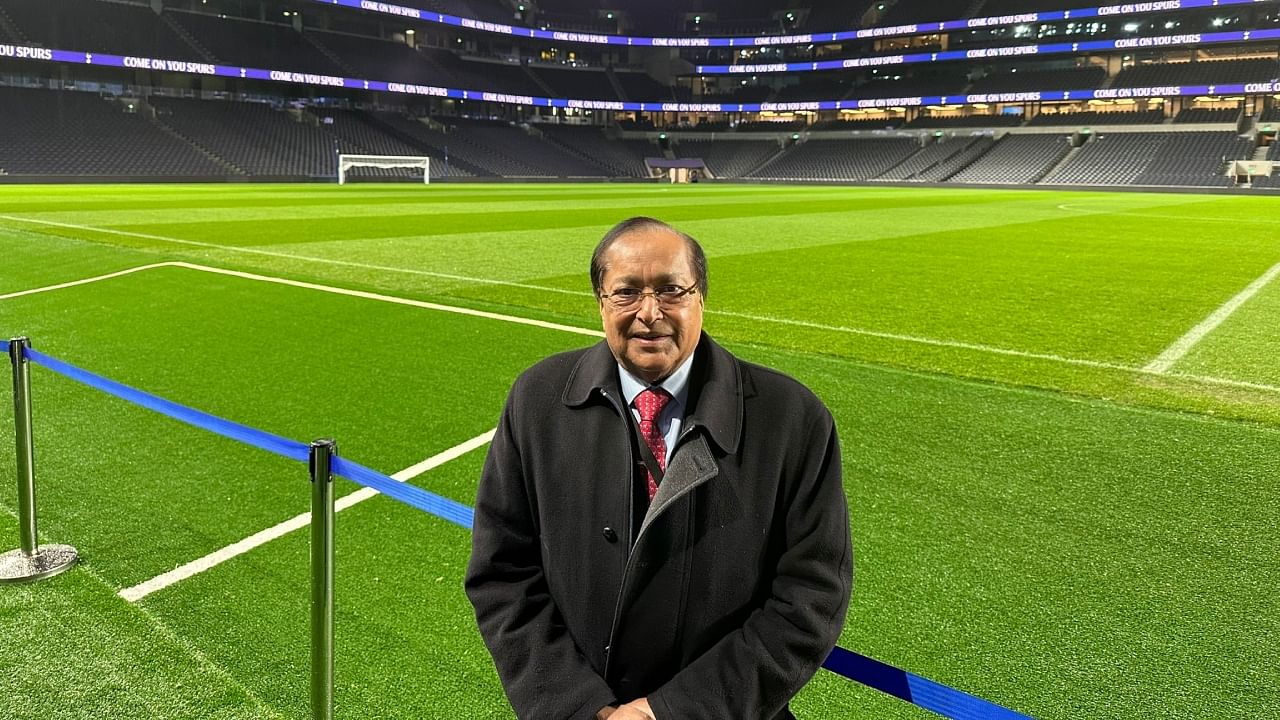
Lord Rami Ranger at the Tottenham Hotspur Stadium.
Credit: X/Twitter/@RamiRanger
New Delhi: India needs a place in the UN Security Council to bring "more stability" to the world, an Indian-origin peer of the House of Lords said on Wednesday.
Interacting with PTI Videos on the sidelines of an event here, Lord Rami Ranger also said fighting has to become a thing of the past, and if one wants to progress, one has to be "peace-loving".
"You have a fight in one corner of the world, its effects are felt worldwide," he said, in a reference to ongoing conflicts in the world.
The event was a panel discussion on India's neighbourhood and its relations with the US, held at the India International Centre here.
"It is not just UK-India, UK-USA, UK-Canada, UK-Australia, UK-Germany, UK-Japan, everything... India is offering one of the largest markets which is growing 6-7 per cent per annum, which is massive. Doing free trade agreement with India is equivalent to a free trade agreement with a minimum ten countries," he said.
The member of the UK House of Lords said the "most beautiful" thing about India is that "we share values, all secular, democratic with a rule of law, at the heart of our governance." "So, people don't have to watch their back doing business with India, as they have to watch their back doing business with China... The Indian diaspora is playing a very important role in the world," he added.
On the latest developments in the dragging Indian-China border issue, he said, "when you start trading goods, you start trading bullets," in a metaphorical reference to the military standoff.
"India is respected by both America and Russia... India needs a place in the (UN) Security Council to bring more stability to the world. India is given its rightful place," he said .
Being the largest democracy, most populous country and a growing economy, "India will be the catalyst for peace, stability and if you want to progress, you have to be peace-loving", Ranger said.
Former ambassador of India to Afghanistan Jayant Prasad termed the latest development in the border row between India and China a "positive development" but insisted on the restoration of status quo ante.
"So, we have taken just the first step, but we have to go a bit deeper and resolve the border issue, and we can't resolve it one go," he said.
Prime Minister Narendra Modi and Chinese President Xi Jinping Wednesday endorsed the India-China agreement on patrolling and disengagement along the Line of Actual Control (LAC) in eastern Ladakh and issued direction to revive various bilateral dialogue mechanisms, signalling attempts to normalise ties that were hit by a deadly military clash in 2020.
In the nearly 50-minute meeting held on the sidelines of the BRICS Summit in Kazan in Russia, Modi underscored the importance of properly handling differences and disputes and not allowing them to disturb peace and tranquillity in border areas and that mutual trust, mutual respect and mutual sensitivity should remain the basis of the relations.
Prasad, who also served as India's envoy in Nepal and Algeria, and as Permanent Representative of India to the Conference on Disarmament, said the LAC needs to be fixed.
"You have to define where actually the border lies, the Line of Actual Control is different in Chinese perception than in the Indian perception, and fix it, so that we have good estimation of the points to which we can patrol, and then we have to resolve the border issue, once for all," he said.
Then, "we can proceed with slow and gradual normalisation of ties," the former diplomat said.